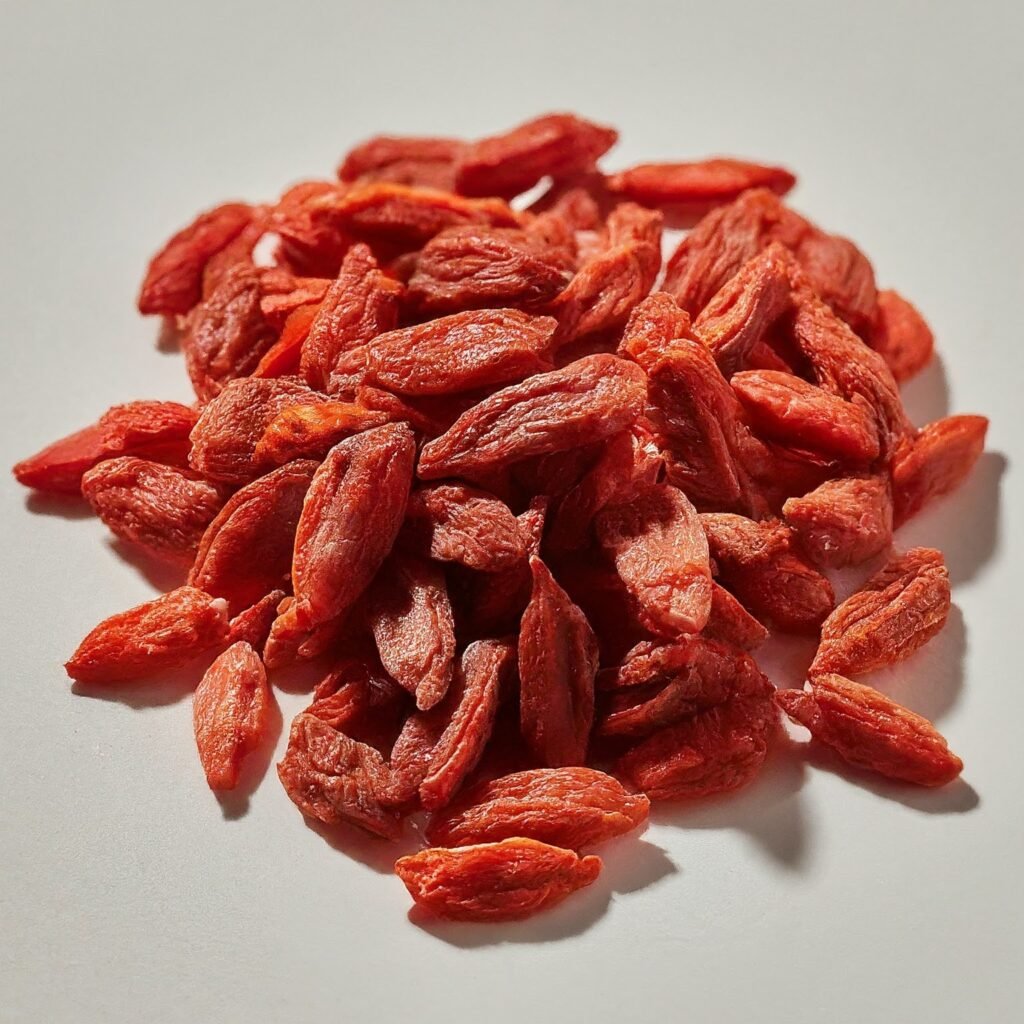Can Dogs Eat Goji Berries? Goji berries, also known as wolfberries, are a popular superfood that have been consumed for centuries in Asia for their numerous health benefits.
These bright red berries are packed with vitamins, minerals, and antioxidants that can provide various health benefits to humans.
However, many pet owners are wondering if goji berries are safe for their canine companions to eat as well.
Can Dogs Eat Goji Berries? Are Goji Berries Safe for Dogs?
The good news is that goji berries are generally safe for dogs to eat in moderation.
According to veterinary experts, goji berries and other non-traditional snacks should not comprise more than 10% of a dog’s daily diet.
This means that for a dog that eats a pound of kibble per day, they can be given about 1.6 ounces of goji berries as an occasional treat.
It’s important to note that individual reactions can vary, and any sign of diarrhea, excessive gas, or vomiting should be a red flag.
If your dog experiences any adverse reactions after eating goji berries, discontinue feeding them and consult with your veterinarian.
Health Benefits of Goji Berries for Dogs

Goji berries are rich in essential nutrients and antioxidants that can provide various health benefits to dogs. Some of the potential benefits include:
Immune System Support
Goji berries contain high levels of vitamin C and beta-carotene, which can help boost the immune system and protect cells from damage.
Selenium, another antioxidant found in goji berries, can slow down the aging process and help dogs with various conditions like heart disease, IBS, skin problems, and seizures.
Eye Health and Vision
The beta-carotene and vitamin A in goji berries can promote eye health and improve vision. Studies have shown that goji berry consumption can lead to signs of improved vision in humans.
Healthy Skin and Coat
Goji berries contain an array of nutrients like vitamin C, beta-carotene, and fatty acids that can promote healthy skin, soothe skin irritations, and give your dog’s coat a glossy shine.
Digestive Health
Goji berries are a great source of fiber, which can improve gut health by slowing down the movement of food through the digestive tract and supporting healthy gut microbes.
How to Feed Goji Berries to Dogs
When feeding goji berries to dogs, it’s important to do so in moderation and as part of a balanced diet.
Fresh goji berries are a healthy snack, but dried goji berries can also be used as a supplement to a dog’s daily diet as long as they are unsweetened and free from harmful additives.
It’s recommended to limit the amount of goji berries given to dogs to avoid overfeeding and ensure a balanced diet.
Dried goji berries are more concentrated in sugar compared to fresh ones, so it’s important to give dogs a smaller amount of dried goji berries than fresh ones.
Toxic Berries for Dogs to Avoid
While some berries like blueberries, strawberries, and cranberries make great dog snacks, there are quite a few berries that aren’t a good choice and can cause a toxic reaction if fed to dogs.
These include mistletoe berries, gooseberries, salmonberries, holly berries, baneberries, pokeberries, juniper berries, and dogwood berries.
Also Read: Can Dogs Eat Juneberries? A Comprehensive Guide
Also Read: Can Dogs Eat Corn Chips? Are They Safe for Your Dog?
Conclusion
In conclusion, goji berries are generally safe for dogs to eat in moderation as an occasional treat or snack.
They are packed with essential nutrients and antioxidants that can provide various health benefits to dogs, including immune system support, eye health, skin and coat health, and digestive health.
However, it’s important to consult with a veterinarian before introducing any new foods to a dog’s diet, especially if they have any underlying health conditions or are at a certain age.
Sources:
- https://blog.tryfi.com/can-dogs-eat-goji-berries/
- https://dogchild.co/blogs/learn/which-berries-are-good-for-dogs
- https://www.dogster.com/dog-nutrition/can-dogs-eat-goji-berries
- https://tomandsawyer.com/blogs/news/can-dogs-eat-gogi-berries
- https://www.vetinfo.com/vets/answers/are-goji-berries-toxic-to-dogs2
- https://thepack.in/articles/ten-healthy-fruits-and-vegetables-for-dogs







